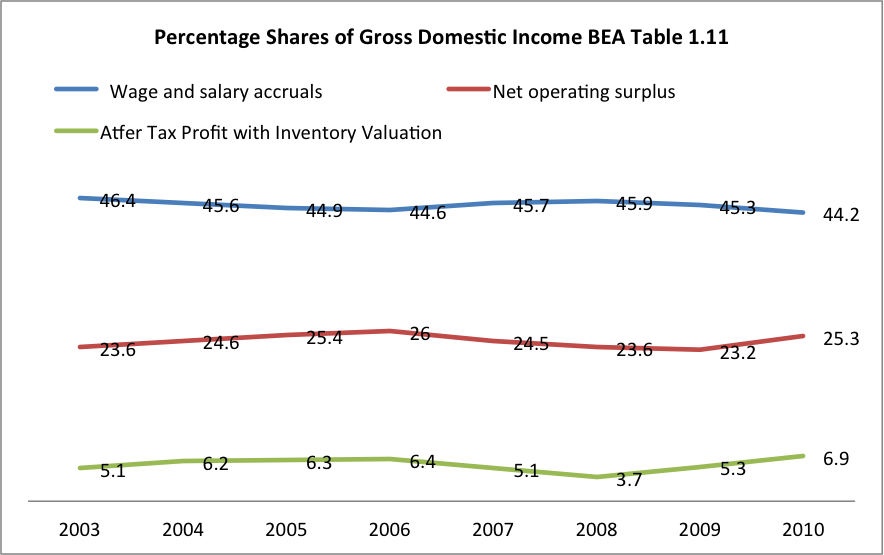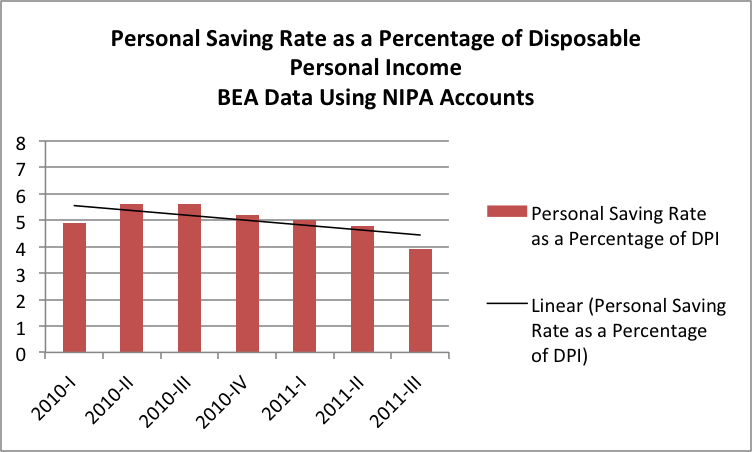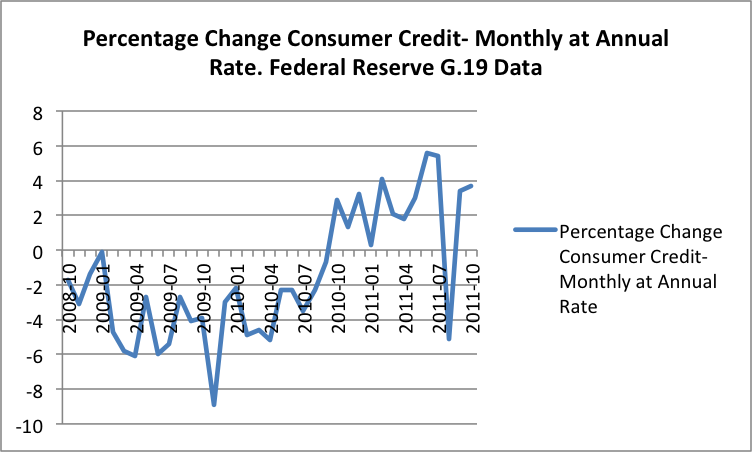
A different look at the state of the economy.
The second half of 2011 and 2012 are defined by growing imbalance producing various political and economic reactions. 2012 will be a political economy year. By this I mean, the political reactions to economic difficulties will be as influential as the stand alone economic trends and numbers. This point is universally missed by leading analysts and pundits. I see gathering storms of public and political risk.
The balances between savings and earnings, profits and wages, growth and contraction are seriously unsustainable. This is truly global, with wide and meaningful variation across metrics and geographies. The U.S. has an enormous and unsustainable divergence between wages and profits. This has now persisted for far longer than rationality would suggest possible. The chart below highlights the consistent growth in profits and stagnancy/decline in wages. It is important to remember that Gross Domestic Income has been largely stagnant. The fall in wage shares suggests that 80 percent of American households, whose spending represents over 50 percent of GDP, are in trouble. We have watched wages and salaries lose income share amid stagnant national growth.

The changes displayed in the chart above look small. They are huge and represent structural shifts with U.S. and international implication. U.S. households are and will remain on edge and constrained. Persistence of elevated unemployment, under employment and low labor force participation are likely.
The elephant in the room is stagnant to negative earnings for households. I do not see this changing in 2012. Thus, U.S. household growth contribution will continue to be fragile and subject to significant downside surprise. This is creating a very unpredictable political climate. Usually peripheral political voices and ideas are gaining rapid and widespread acceptance. The public is disillusioned -- literally -- with standard politicians and parties. This is likely to be pronounced across the upcoming 2012 electoral cycle. Political instability will exert major macro influence.
The balance between wage/salary income and profits can not persist on the present path. Either we see wages rise or profits will have to correct down. This can come from economic or political reaction. 2012 will be a political economy year. We have seen a recent and pronounced increase in consumer spending despite falling real wages, high unemployment and mixed sentiment. Holiday 2012 was stronger than macro fundamentals would suggest. We are apprehensive regarding the health and sustainability of this trend. Consumer spending increases of late have come from falling savings rates and increases in consumer debt outstanding. Some of this will be ironed out with a week pattern in U.S. consumer discretionary spending across 1Q-2Q 2012.
Recently we have had a run of pretty decent economic numbers. I would love to see this continue. I doubt it will.

People have been spending more by saving less and borrowing more. The chart above, and the one below, illustrate the "strength" you have heard so much about. Sadly, there is every reason to see this as ominous.

There is every indication that the next 12 months will see public frustration with the length and depth of economic trouble boil over in the political process. The Republican primary is really just a dry run. We will see popular movements, left and right, assert themselves more in the next 12 months.
The politics and political norms of the U.S. are shifting as the economy has already shifted. 2012 looks set to be the year when this dramatically emerges. Our 19th century distribution of economic opportunity and income are mutating our polity.
Data sources: